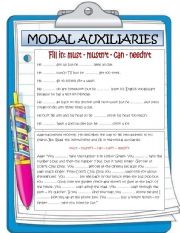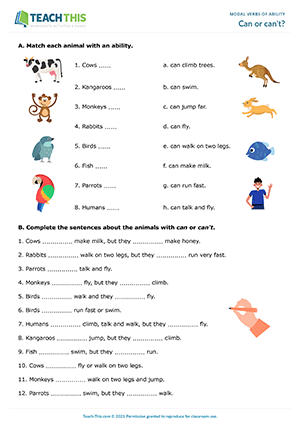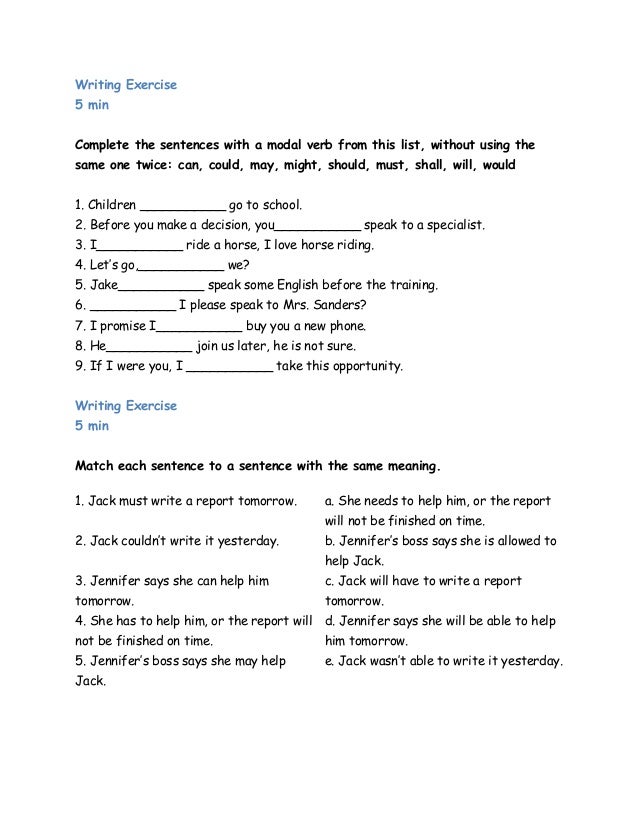
May he come to your party? No, he must not.

When you use other tenses you have to replace them. You can only use them with the present tense. Modal verbs don't have a past form (except can) and a past participle (3 rd form). The most common modal verbs are can, may and must. Modals Exercise Fill in the blanks with an appropriate modal auxiliary verb. Grammar Exercise - Modals Do the exercise on modal verbs and click on the button to check your answers Before doing the exercises you may want to read the lesson on modal verbs. We also use them to make requests and offers. View Modals Exercise.pdf from ENGL 6203 at AMA Computer University. Mixed exercises PDF A printable test to practise modals and other verb foms. Please contact me if you have any questions or comments.Modal verbs are types of auxiliary verbs which express necessity, ability, permission or possibility. Welcome! I'm Seonaid and I hope you like the website. Need more practice? Get more Perfect English Grammar with our courses. successful harvard business school application essays pdf freewords to continue essayresearch paper on microfinance in bangladeshspeech essay topicscase.

The past modals 'could have + past participle', 'should have + past participle' and 'would have + past participle' can be confusing.


Probability:įirst, they can be used when we want to say how sure we are that something happened / is happening / will happen. Here's a list of the modal verbs in English: canġ: They don't use an 's' for the third person singular.Ģ: They make questions by inversion ('she can go' becomes 'can she go?').ģ: They are followed directly by the infinitive of another verb (without 'to'). Click here for all the exercises about modal verbs


 0 kommentar(er)
0 kommentar(er)
